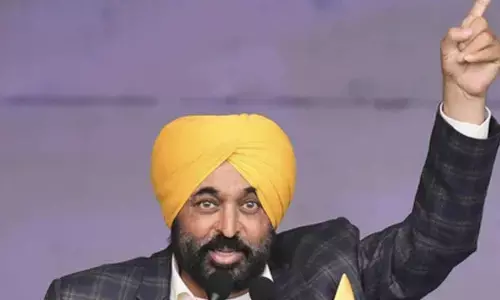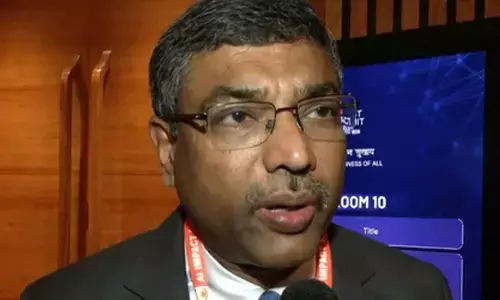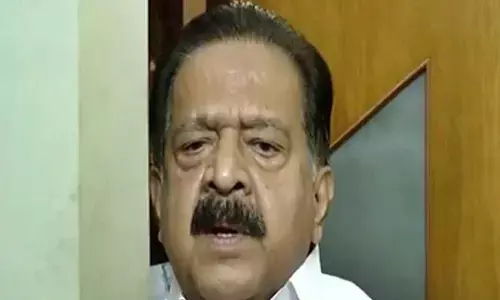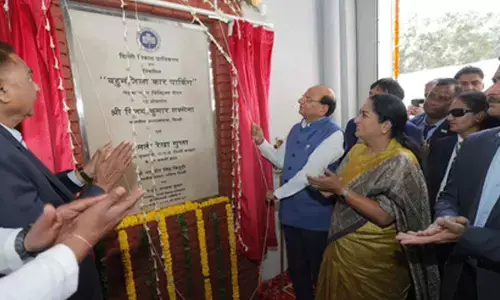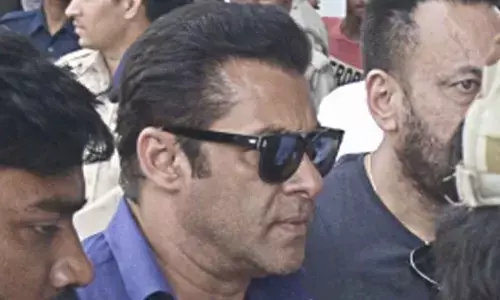Aurangzeb’s last battle

Aurangzeb’s last battle. When the New Delhi Municipal Corporation decided, on a petition from the Delhi Member of Parliament, Mahesh Girri, to rename Aurangzeb Road as A P J Abdul Kalam Marg, it should not have come as a surprise to many.
When the New Delhi Municipal Corporation decided, on a petition from the Delhi Member of Parliament, Mahesh Girri, to rename Aurangzeb Road as A P J Abdul Kalam Marg, it should not have come as a surprise to many.

After all, Aurangzeb, the last of the main Mughal emperors, has for long been the cruel, narrow-minded, fundamentalist foil to his great-grandfather, Akbar “the Great,” who is described as liberal, ecumenical and a great empire builder. Aurangzeb imprisoned his father, killed his brothers, including the learned, religiously-tolerant Dara Shikoh, executed the Sikh Guru Teg Bahadur and harassed the Maratha king Shivaji, destroyed temples and imposed the Jiziya on Hindus and even banned music from the Mughal court.
Obstinate to a fault, he spent the last 25 years of his life trying to subdue the recalcitrant rulers of the Deccan in a futile obsession which bankrupted and weakened the empire, leading to its eventual fall. The ruling BJP and its mentor the RSS, of course, speak of a thousand years of foreign rule in India.
According to the Hindutva view of history, Aurangzeb is only an archetype of the Muslim ruler who oppressed Hindus over this millennium. It is important to remember that their dislike is not limited to Aurangzeb; a few months back, Akbar was sought to be portrayed as a “Muslim invader” who was resisted by the brave but ultimately tragic, Maharana Pratap.
But Aurangzeb is viewed as a “bad” Mughal even by those who do not share the Hindutva world view; as was illustrated by the triumphant tweet by the populist Chief Minister of Delhi, Arvind Kejriwal, who was the first to announce the decision to rename Aurangzeb Road.
Much of Aurangzeb’s reputation as a fanatic Muslim, oppressor of Hindus and Sikhs and one responsible for the downfall of the Mughal empire, was a result of the “great man” perspective of history of pioneering historians like Jadunath Sarkar.
Sarkar was no communal historian, but his work looked into the persona of Aurangzeb to find flaws and shortcomings which led to the fall of the Mughal empire; and he found much evidence of his fanaticism, obstinacy and inability to take diverse people along.
An immense amount of scholarship has, since then, expanded our sources as well as understanding of Mughal history. The scholarship of Satish Chandra, Ather Ali, Nurul Hasan, Irfan Habib, Muzaffar Alam, among others, has shown that changes in the political economy of the Mughal empire and in the structure of the nobility explain much more about Aurangzeb and his actions, than mere personality profiles...
After independence, the government did not rename those roads which the British, always eager to derive legitimacy for their colonial rule from the Mughal empire, had named after the great Mughals; perhaps due to the fact that the then Prime Minister Jawaharlal Nehru was himself a fine historian who would not have agreed to such a narrow view of history.
Yet, over the decades, while scholarship has grown diverse and now has also incorporated many aspects other than political economy and imperial structures into Mughal history, popular notions of history have remained stuck to a personality-heavy perspective. And the locus of our politics too has shifted significantly right.
A Hindutva dispensation lords over Delhi out to reclaim its place in the sun. Its court historians claim myths as history and its putative emperor, another son of Gujarat like Aurangzeb, speaks not the language of a democratic leader but of a regal lord (notice how he refers to farmers as “my peasants” [mere kisan] or to workers as “my workers” [mere mazdoor] in his speeches) and fancies himself nothing less than a Hindu Padshah.
The irony of history is that our modern slayer of the Mughal does not realise how similar he appears to Aurangzeb in the eyes of an historian, as he tries to use religious divides and a personal puritanism to tackle the increasingly insurmountable problems of India’s political economy.


